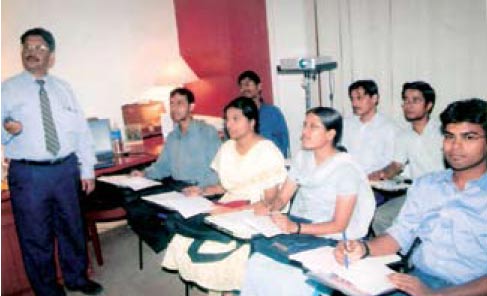 Last month, the idea about this article came to my mind just after watching the movie 3 Idiots. By now, I guess you haven’t been able to escape from being influenced either. The movie—a fairly serious take— essentially depicts how eager we are to embrace mindlessness and how keen we are to promote a culture where education is purely examination-centric without real-life application.
Last month, the idea about this article came to my mind just after watching the movie 3 Idiots. By now, I guess you haven’t been able to escape from being influenced either. The movie—a fairly serious take— essentially depicts how eager we are to embrace mindlessness and how keen we are to promote a culture where education is purely examination-centric without real-life application.
It’s time that you get out of this ‘aka idito’ vagueness of just following the herd and passing the exam. Here is your ‘why’ and ‘how to’ guide.
Why focus on practical knowledge?
“There is a gap between engineering course content and the requirements of the engineering services industry,” says Krishna Kant, senior programme manager, academic alliance programme–South Asia & Russia, EMC, from his vast talent nurturing experience.
C.P. Ravikumar, director-university relation, Texas Instruments, adds, “We perceive this gap during the process of interviews for regular as well as internship positions.” While our education system imparts knowledge on various technical/non-technical areas, it often falls short of meeting the expectations of the real world. “The biggest gap is the practical application and knowledge of industry practices related to the requirements of a particular role,” says Lokesh Mehra, regional manager-corporate responsibility, Cisco South Asia.
One reason for this gap is a fundamental lacuna in the engineering education framework. This is the only profession where an individual goes from an academic programme directly into a job, with no prior on-the-job training. All the other fields of study require individuals to have a six-month to one-year long apprenticeship or internship before they start doing the real job.
“Getting fresh graduates ramped up quickly to productivity is a key concern across the industry ecosystem as new graduates sometimes take six months to a year to become productive. Ideally, we should overhaul engineering education and make its duration five years by including a mandatory six-months to one-year long apprenticeship,” opines Jaswinder Ahuja, corporate vice president and managing director, Cadence Design Systems.
Vinay Shetty, country head-component business, ASUS (India), explains, “When fresh graduates enter the working environment, they have lots of theoretical knowledge which is redundant, rather than the necessary practical knowledge.”
Neelam Kumar, executive director, Aplab, points out, “Most of our institutions and universities lag behind the rest of the world in research output.”
What should you do?
Here I take you through five boosters for your career.
Tip #1: Pay attention to basics
It may not sound important, but most of the interviewers will start with active and passive components, building blocks of electronics systems and nonetheless faultfinding techniques. “A strong foundation of the basics of electronics is must,” says Raminder Singh Soin, managing director, Quad.
Strong fundamentals of electronics will help you to understand complex topics that you may get exposed to after joining the industry.
An electronics engineer is expected to have an excellent knowledge of electronic devices and RF, analogue, digital and especially CMOS design. This includes electrical fundamentals like signal integrity and power integrity. “Specifically, expertise in VLSI, VHDL, FPGA and ASIC design, signal processing, control systems, industrial manufacturing systems, power transmission, simulation and verification techniques is required,” says Neeraj Varma, country manager-sales, Xilinx, India, Australia and New Zealand.
In terms of languages, one must be familiar with HDL (Verilog or VHDL), C and C++. Other skills that an electronics engineer must seek to possess are domain knowledge of microprocessors, control systems, embedded systems, and circuit and device testing.
Tip #2: Get trained to have an extra edge
If you’ve just entered the college, your course curriculum may not provide all the learning you need. Make an effort to gain some extra skill, be it technical or interpersonal.
“Each engineering institute or college should make use of the vast resource of experts and organi-sations readily available in the country to do some technical training on specialised topics. This will enable the students for the working world,” suggests Shetty.
Electronics has many branches today, such as VLSI, DSP, communications, power electronics and embedded systems. “The industry may assume that the student has been exposed to at least one course in these branches. While the industry may be willing to provide job-specific training, the student is expected to have the technical know-how required to absorb the training. For example, for training in VLSI, the student is expected to know about MOS transistor operation, CMOS circuits, logic gates and flip-flops, operational amplifiers, feedback amplifiers, poles and zeroes,” says Ravikumar.
Ravikumar also feels that system-level design using off-the-shelf ICs is a major gap-area today. In digital and analogue design lab classes, students use simple ICs such as gates and op-amps. They may later do a lab on microprocessor/microcontroller/DSP/C programming. Here learning could be improved in two ways:










